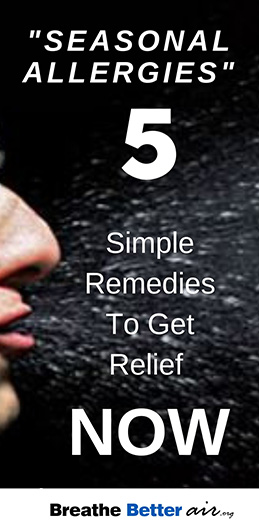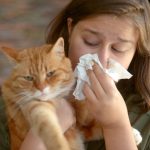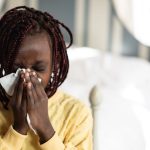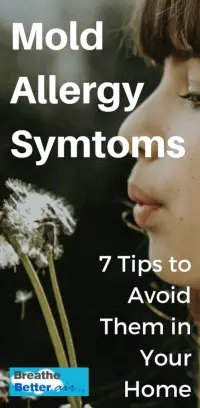The weather is getting warmer, and with it comes a higher pollen count. That may leave you with a runny nose, itchy eyes, and that annoying sensation of not being able to sneeze no matter how much you want to. One of the most common home remedies for seasonal allergies is local honey. The idea is to build up immunity before symptoms hit. It can work, but it’s far from the only solution. Here are 5 simple remedies to help you get relief from seasonal allergies.
Table of Contents
Nettle-Peppermint Tea
Nettles have a bad reputation, but they are one of the best herbs you could have in your repertoire. They can be used or everything from arthritis and lowering blood pressure to easing seasonal allergies. Peppermint itself has a kind of flavonoid called luteolin-7-O rutinoside, which helps to prevent anti-inflammatory enzymes such as histamines from being reduced. Peppermint also helps to reduce the effects of these enzymes to reduce the impact of seasonal allergies. Just put the peppermint and nettle together in a mug and pour in boiling water. Steep the mixture for around 15 minutes, add some honey for taste, and drink twice a day as needed to get allergy relief.
Bee Pollen
If you aren’t getting the relief you need from local honey, then you should try bee pollen. The concept behind the two is pretty similar; start taking small amounts and gradually increase the dosage to build up your immunity to the local pollen around you. This follows what is known as the “hygiene hypothesis”, where being exposed to germs and bacteria as a child leads to immunity against them in later life. Expose yourself to allergens before allergy season begins to ensure your system isn’t hit as hard when there’s more pollen in the air. It’s important that you make sure you aren’t allergic to bees or anaphylactic, and that you don’t have an allergic reaction to pollen. It’s important that you use local pollen. This remedy only works if you’re using local pollen. It should come from a good, organic source. Start taking pollen around five months before the allergy season begins. Start out with a small dose and gradually increase the dose. Decrease the dose if you start developing allergic reactions, and continue taking a small dose during the allergy season itself.
Citrus Drinks
Given that allergies tend to peak during the spring and summer, they coincide with the warm and sunny weather that you enjoy by spending time outdoors. While tea is healing, there are times when you just want a cool and refreshing drink. This great citrus drink is packed full of vitamin C, which helps to relieve seasonal allergies as it nourishes the immune system. Given that allergies leave the immune system in trouble, it’s easy to understand why a citrus drink like this is a great idea. You’ll need 2 oranges, half a lemon, and a tablespoon of raw, organic local honey. Squeeze the juice out of the lemon and oranges and leave them to chill for a few hours before stirring in the honey, adding ice, and enjoying on a daily basis.
Red Onion Water
Onions are filled with quercetin, a water soluble compound that has been shown to reduce the amount of histamine the human body produces. Effectively, it reduces allergy symptoms. Think of it as a natural anti-histamine. Quercetin has also been shown to inhibit inflammation and work as a bronchodilator; that is to say that it opens up the airways and makes it easier to breathe. For this you’re going to need 1 red onion, 4 cups of water, and some organic raw honey to taste. Slice the onion as thinly as you can and add it to the water. Leave it to infuse for up to 12 hours before drinking it once or twice a day. It will keep in a fridge for up to 4 days, so don’t be afraid to make a lot in advance. Add some honey into an individual glass when drinking it to add some taste if you want.
Air Purifiers
Air purifiers are a great way to keep seasonal allergies at bay, but not just any air purifier will do. You need to avoid using an ionic air purifier, because they generate ozone; a toxic substance. You need a HEPA-certified air filter. HEPA stands for “High-effective particulate air”, and an air filter needs to remove 99.7% of particles in air over 0.3 micrometers in order to meet this lofty standard.
HEPA filters are ideal for people with mild and moderate allergies that want some respite, but keep in mind that they only protect you while you’re indoors. If you have severe allergic reactions to airborne allergens and seasonal diseases, then you might want to invest in a bigger and more powerful PECO filter. A PECO filter – which stands for photoelectrochemical oxidation – works on the molecular level to destroy airborne irritants and pollutants. It can take out some of the things that a HEPA filter may miss. It’s beneficial for those who need immediate relief from severe allergies. Don’t forget to replace the filter in an air purifier every so often!
Summary
There are lots of things you can do in your home to reduce the impact of seasonal allergies. It’s tempting to open up the window to let in the cool breeze, but remember this will also let in allergens. It’s better to keep the windows closed and rely on the AC. Try some of these natural remedies and invest in a good HEPA filter to keep your nose clean this allergy season.








